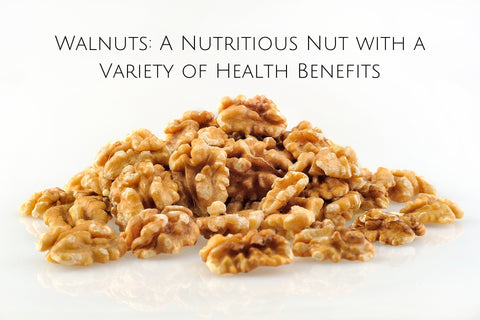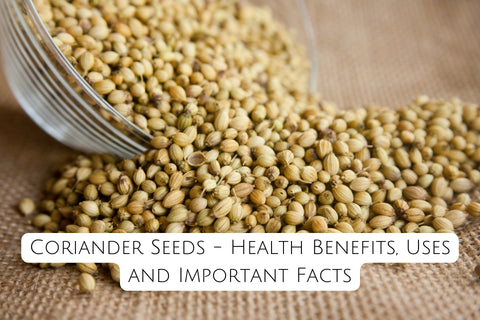A walnut is a type of tree nut known for its delicious and nutritious edible seed. Walnut trees belong to the genus Juglans and are native to various regions of North America,Europe, and Asia.
Walnuts are popular for their rich flavor and are often eaten as a snack or used as an ingredient in various dishes, including salads, baked goods, and desserts. They are a good source of healthy fats, omega-3 fatty acids, protein, fiber, vitamins, and minerals. Consuming walnuts in moderation can have potential health benefits, such as promoting heart health, supporting brain function, and providing essential nutrients.
There are several varieties of walnuts, with the English walnut (Juglans regia) being one of the most common. Walnuts are typically sold in their shell or as shelled kernels, and they can be enjoyed in both raw and roasted forms.
Walnut Nutrition:
Walnuts are a good source of protein, fiber, and healthy fats, including omega-3 fatty acids. They are also a good source of vitamins and minerals, including vitamin E, magnesium, and manganese
|
NUTRIENT |
Amount Per 1-Ounce Serving (28g) |
|
Calories: |
185 |
|
Protein: |
4.3 grams |
|
Fat: |
18.5 grams |
|
Carbohydrates: |
3.9 grams |
|
Fiber: |
1.9 grams |
|
Sugar: |
0.7 grams |
|
Vitamin E: |
7% of the Daily Value (DV) |
|
Magnesium: |
10% of the DV |
|
Manganese: |
42% of the DV |
|
Copper: |
12% of the DV |
|
Phosphorus |
5% of the DV |
|
Vitamin B6 |
4% of the DV |
|
Potassium |
3% of the DV |
|
Iron |
3% of the DV |
|
Zinc |
3% of the DV |
|
Calcium |
2% of the DV |
Walnuts benefits
Walnuts offer a variety of health benefits due to their nutrient-rich composition. Here are some of the key benefits associated with consuming walnuts:
-
Heart Health:

- Walnuts are rich in monounsaturated and polyunsaturated fats, including alpha-linolenic acid (ALA), a type of omega-3 fatty acid. These fats can help reduce LDL (bad) cholesterol levels and lower the risk of heart disease. Consuming walnuts as part of a heart-healthy diet may promote cardiovascular health.
-
Improved Brain Function:

- Omega-3 fatty acids found in walnuts, particularly ALA, are associated with better cognitive function and may help protect the brain from age-related decline. Some studies suggest that regular walnut consumption may support memory and cognitive function.
-
Antioxidant Properties:

- Walnuts contain antioxidants, such as polyphenols and vitamin E, which help combat oxidative stress and reduce inflammation in the body. These antioxidants may play a key role in reducing the risk of chronic diseases.
-
Anti-Inflammatory Effects:

- Walnuts' omega-3 fatty acids and antioxidants have anti-inflammatory properties, which can help alleviate inflammation-related conditions, such as arthritis and other inflammatory disorders.
-
Weight Management:

- Despite being calorie-dense, walnuts can contribute to satiety and help control appetite due to their protein, fiber, and healthy fat content. Including walnuts in your diet in moderation may support weight management by reducing overall calorie intake.
-
Improved Gut Health:

- Walnuts contain dietary fiber, which can promote digestive health and support a healthy gut microbiome. Fiber helps regulate bowel movements and may reduce the risk of certain digestive disorders.
-
Bone Health:

- Walnuts are a source of minerals like calcium, magnesium, and phosphorus, which are important for maintaining strong and healthy bones. These minerals, along with their fatty acids, may contribute to bone health.
-
Cancer Prevention:

- Some studies suggest that the antioxidants and phytochemicals in walnuts may have protective effects against certain types of cancer. While more research is needed, including walnuts in a balanced diet is generally considered a healthy choice.
-
Skin Health:

- The nutrients in walnuts, including vitamin E and omega-3 fatty acids, may benefit skin health by reducing oxidative stress and inflammation. These compounds can contribute to a healthy complexion.
-
Diabetes Management:

- Consuming walnuts may help improve blood sugar control in people with diabetes or those at risk of developing the condition. The healthy fats and fiber in walnuts can help stabilize blood sugar levels.
Side effects of walnuts:
While walnuts are generally considered a healthy and nutritious food, there are a few potential side effects and considerations to keep in mind:
- Allergies: Some of the people may be allergic to walnuts or other tree nuts. Walnut allergies can cause symptoms ranging from mild itching or swelling to severe allergic reactions, including anaphylaxis, which is a life-threatening condition. If you suspect a walnut allergy or have a history of nut allergies, it's crucial to avoid walnuts and products containing them.
- Gastrointestinal Issues: This may include symptoms like bloating, gas, diarrhea, or stomach cramps. If you experience such issues, it's advisable to moderate your walnut intake.
- Weight Gain: While walnuts are nutritious, they are calorie-dense due to their healthy fat content.
- Omega-6 Fatty Acids: Although walnuts are a source of beneficial omega-3 fatty acids (ALA), they also contain omega-6 fatty acids. While omega-6 fatty acids are necessary for the body, an imbalance between omega-3 and omega-6 fatty acids in the diet may contribute to inflammation. Maintaining a balanced intake of both types of fatty acids is recommended.
- Oxalates: Walnuts, like some other foods, contain oxalates, which can contribute to the formation of kidney stones in susceptible individuals. If you have a history of kidney stones or are at risk, it may be advisable to monitor your oxalate intake, although moderation is typically more important than complete avoidance.
- Interactions with Medications: Walnuts contain compounds that may interact with certain medications. For example, the high vitamin K content in walnuts could interfere with blood-thinning medications like warfarin. If you are on medication or have specific dietary restrictions, consult your healthcare provider or a registered dietitian to ensure your diet is compatible with your medications and medical conditions.
ways to consume walnuts:
There are many ways to consume walnuts. Here are a few ideas:
- Eat them plain. Walnuts are a delicious and nutritious snack on their own.
- Add them to yogurt or oatmeal. Walnuts add crunch, flavor, and protein to yogurt and oatmeal.
- Sprinkle them on salads. Walnuts add a nutty flavor and crunch to salads.
- Use them in baking. Walnuts can be used in a variety of baked goods, such as breads, muffins, cookies, and cakes.
- Make a walnut pesto. Walnut pesto is a delicious and healthy sauce that can be used on pasta, vegetables, or bread.
- Add them to smoothies. Walnuts add a nutty flavor and creaminess to smoothies.
- Use them as a breading for chicken or fish. Walnuts add a crunchy and flavorful coating to chicken and fish.
- Add them to stir-fries. Walnuts add a nutty flavor and crunch to stir-fries.
- Make a walnut milk. Walnut milk is a delicious and dairy-free alternative to cow's milk.
In conclusion, walnuts are a highly nutritious and versatile food that can be enjoyed in various ways. It's always a good idea to be mindful of portion sizes and consider any dietary restrictions or health conditions you may have. Ultimately, incorporating walnuts into your diet can provide both culinary enjoyment and health benefits, and they can be used in snacks, meals, and desserts to enhance flavor and nutrition. If you have specific dietary goals or concerns, consulting with a healthcare professional or registered dietitian can help you create a personalized plan that includes the appropriate amount of walnuts to support your overall well-being.




Comments (0)
There are no comments for this article. Be the first one to leave a message!